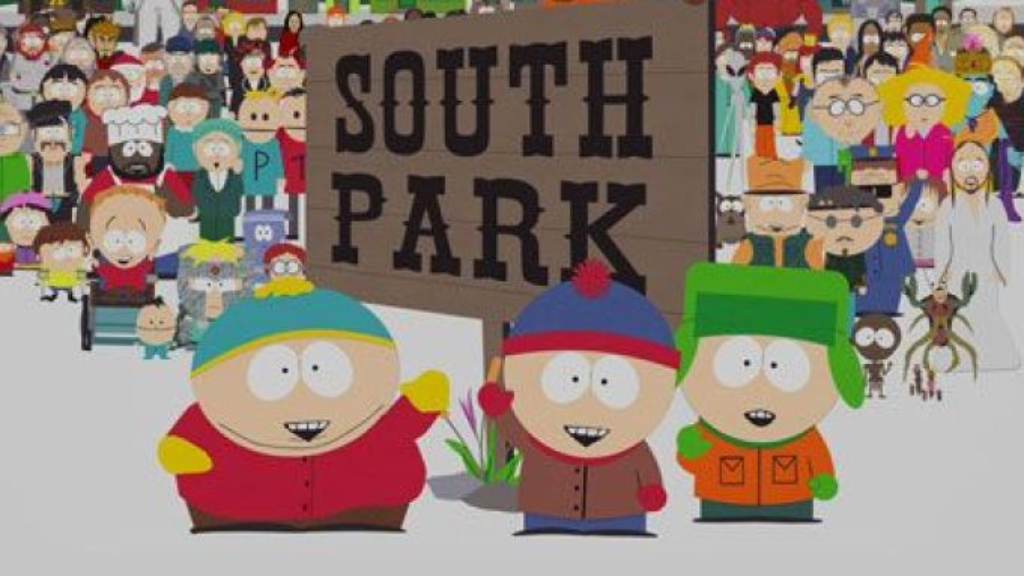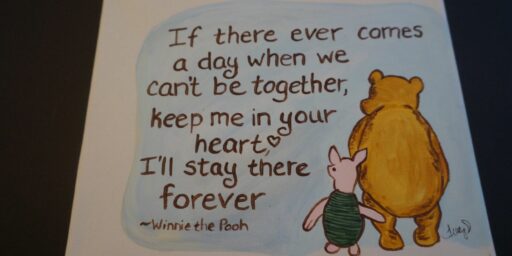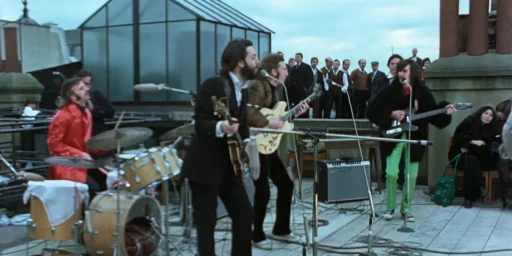South Park Banned In China After Episode Mocking Chinese Censorship
South Park mocked Chinese censorship so, of course, they were censored in China.

Episodes of South Park have been removed from China’s increasingly insular version of the Internet after an episode mocking Hollywood’s effort to censor itself to order to sell movies in China:
HONG KONG — “South Park,” the long-running Comedy Central cartoon whose mockery has spared few touchy topics, was erased from major platforms in China after an episode last week taunted Chinese censors and the far-reaching effect they often have on American entertainment.
The government’s censors, who routinely quash news and commentary deemed undesirable by the ruling Communist Party, wiped out video clips and discussions of the show, which premiered in 1997 and has lasted 23 seasons. Once known mostly for the raunchy humor coming from the mouths of its elementary-school-age main characters, the show has in recent seasons focused on political and cultural satire, without abandoning its boundary-pushing ways.
Last week’s episode, called “Band in China,” appeared to cross a new line for the Chinese authorities. On Baidu Tieba, a popular discussion platform, searches for “South Park” on Tuesday returned the following message: “According to the relevant law and regulation, this section is temporarily not open.”
Searches for the show were also fruitless on Youku, a video hosting service, which similarly cited “the relevant law and regulation.” On Weibo, the country’s most popular social network, posts mentioning the show could not be found.
(…)
[In the episode,] the character Randy Marsh flies to China hoping to expand his marijuana business there, only to be arrested at the airport. In a work camp, he meets Winnie the Pooh, who, the show explains, was banned after Chinese social media users pointed out his resemblance to Mr. Xi. (The Pooh censorship is real, and reporting on it got John Oliver censored last year.
Meanwhile in Colorado, the South Park children form a band, and a manager wants to make a biopic about them — but insists that their life story be told in a way that will be acceptable to Chinese censors, so they don’t lose access to the market. He instructs the boys to cut references to the Dalai Lama (seen by the Chinese government as a separatist), organ transplants (China has been accused of harvesting prisoners’ organs) and homosexuality (nothing is wrong with that subject “unless you want to make money in China,” he says).
Eventually the boys tire of the ordeal. “I want to be proud of who we are, guys, and anyone who would betray their ideals just to make money in China isn’t worth a lick of spit,” says one of them, Stan.
The N.B.A. is hardly the first international business to make concessions to China’s political sensitivities as it seeks access to its lucrative market, or to forcefully apologize after running afoul of them. Movie studios, especially, have worked to ensure that their scripts aren’t at odds with state censors, lest they lose billions in potential business.
Disney, for one, earned $858 million for “Avengers: Endgame” in the United States and an additional $614 million from China. Moviegoers in China bought an estimated $8.87 billion in movie tickets last year, according to box office analysts.
The “South Park” episode mocked Disney by turning a Mickey Mouse look-alike into a craven profit seeker. On his flight to China, Randy Marsh was surrounded by characters from “Avengers” and “Star Wars,” along with N.B.A. players.
This incident, of course, comes at the same time that the Houston Rockets in particular and the National Basketball Association as a whole have found themselves facing widespread blowback over a tweet supporting protests in Hong Kong by a minority owner of the Rockets that was subsequently deleted. The league has spent the better part of this week trying to mend fences with its partners in China while at the sam time claiming that it supported the free speech rights of its owners and players, a position that has seemingly satisfied nobody.
South Park’s creators, meanwhile, are having nothing to do with the kowtowing, and instead issued what can only be called a classic South Park apology that isn’t really an a apology:
South Park’s creators have responded with a mock apology to reports that China has censored the programme, ridiculing the country and comparing President Xi Jinping to Winnie the Pooh.
The “apology” from Trey Parker and Matt Stone comes after reports on Monday that China had scrubbed all episodes, clips and content related to the long-running comedy cartoon from Chinese streaming and social media platforms in response to a recent episode that was critical of the country.
The episode, called Band in China, took aim at what it portrayed as a tendency in US culture to adjust content to accommodate Chinese censorship laws. “It’s not worth living in a world where China controls my country’s art,” says one character in the episode.
The episode also includes a plot line in which a character is caught selling drugs in China and as punishment is sent to a work camp, similar to the mass internment camps in Xinjiang where an estimated one million people, including Uighurs and other Muslim minorities are detained.
The episode, called Band in China, took aim at what it portrayed as a tendency in US culture to adjust content to accommodate Chinese censorship laws. “It’s not worth living in a world where China controls my country’s art,” says one character in the episode.
The episode also includes a plot line in which a character is caught selling drugs in China and as punishment is sent to a work camp, similar to the mass internment camps in Xinjiang where an estimated one million people, including Uighurs and other Muslim minorities are detained.
The statement continued: “Tune in to our 300th episode this Wednesday at 10! Long live the Great Communist Party of China! May this autumn’s sorghum harvest be bountiful! We good now China?”
Here’s the statement:
This is how you respond to Chinese censorship.






In Ill Winds, Saving Democracy from Russian Rage, Chinese Ambition, and Ameerican Complacency, Larry Diamond describes at some length China’s extensive influence operations. What South Park and the NBA are experiencing is being repeated, out of public sight, a thousand places.
Good for the South Park guys. I’m tired of people sucking up to China this way. They need us just as much as we need them.
I shot down Chinese requests to change my manuscripts years ago. You go down that road you’re a servant.